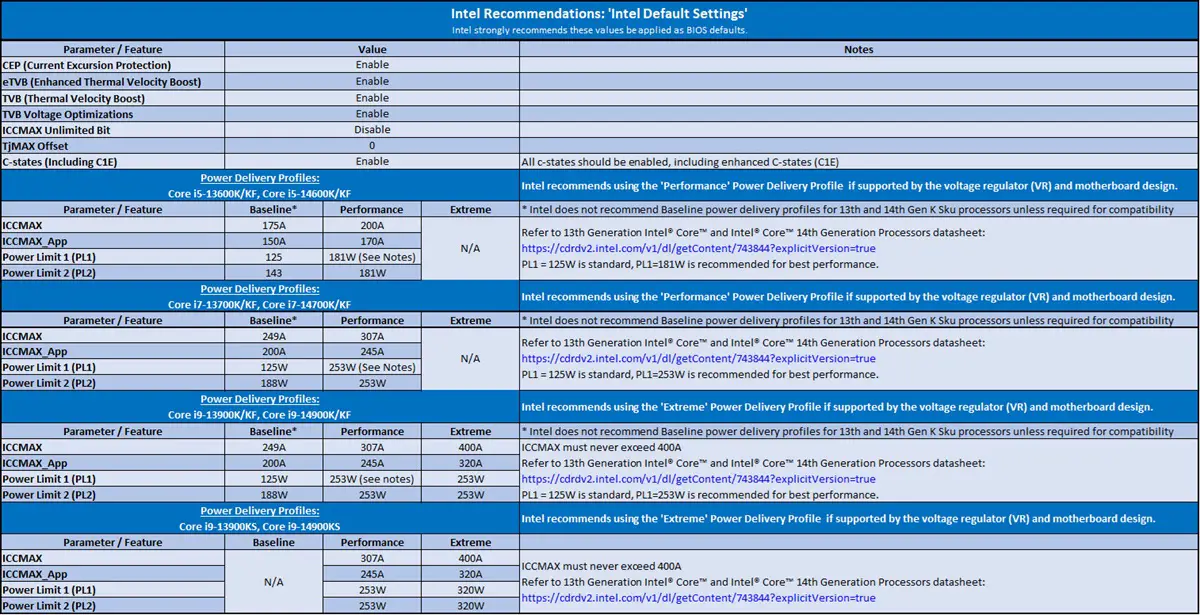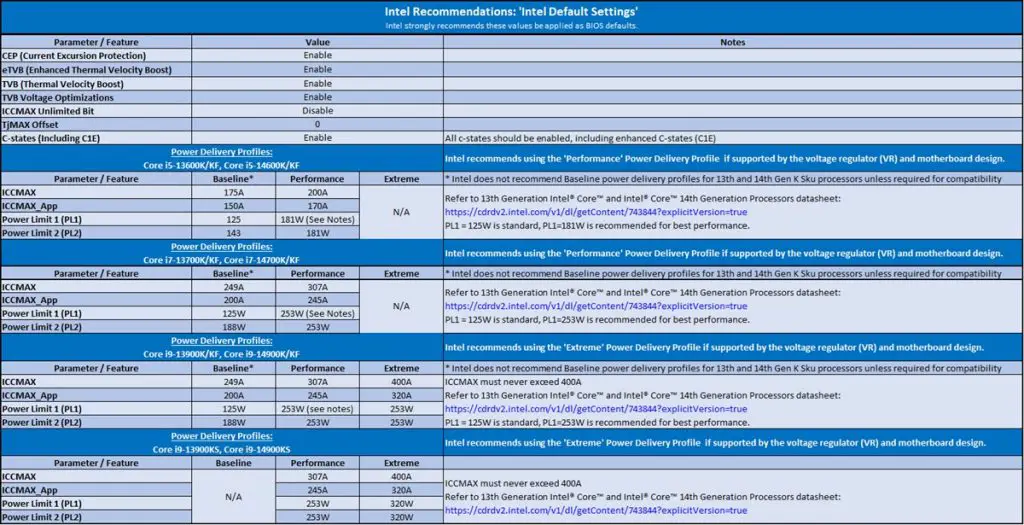
Previously, Intel addressed the gaming stability issues of the 13th and 14th generation Core processors by introducing the “Intel Default Settings” configuration profile. This profile reduced core voltage and limited the boost margin of these processors but did not resolve the fundamental issue; it merely reduced the likelihood of the problem occurring, resulting in performance degradation. Reports indicated that the cause was incorrect values in the microcode algorithm related to the eTVB function, which could reduce processor reliability under high temperatures due to increased frequency and corresponding voltage. The affected platforms include Raptor Lake-S and Raptor Lake Refresh-S.

Recently, Intel released guidance (June 2024) on the instability issues of the 13th and 14th generation Core K/KF/KS processors, sharing confirmed factors causing instability and the current user guide. Intel also expressed gratitude to the community for their patience and stated that they are continuing to investigate reported instability issues with their partners, promising to share updates until a conclusion is reached.
Intel’s analysis confirmed that a factor contributing to the instability of the 13th/14th generation Core K/KF/KS processors is the elevated processor input voltage caused by previous BIOS settings that allowed the processors to operate at turbo frequencies and voltages even under high temperatures.
During the investigation, Intel discovered a flaw in the eTVB algorithm that could affect the operating conditions of the 13th/14th generation Core K/KF/KS processors. Intel has developed a patch for the eTVB flaw and is collaborating with OEM/ODM motherboard partners to release it as part of a BIOS update by July 19, 2024. With continued investigation with partners, Intel aims to ensure all users are aware of the recommended settings for the 13th/14th generation Core K/KF/KS processors. Intel also advises users to check their motherboard manufacturer’s website for the latest BIOS updates.
The recommended settings have undergone extensive testing and validation to ensure optimal stability and reliability for the 13th/14th generation Core K/KF/KS processors. Intel emphasizes that users who overclock or use settings exceeding the recommended power limits do so at their own risk, which may void warranties or affect system health.
Furthermore, Intel stated that the currently identified eTVB flaw is related to instability issues but is not the root cause. This means that Intel and its partners’ analytical investigations will continue, potentially leading to new recommended settings for the 13th/14th generation Core K/KF/KS processors.


